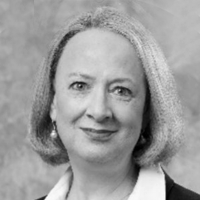
Sexual offences are a complex area requiring judicial officers to navigate evidence, procedure and emotion amid evolving legislation and jurisprudence.
This program will provide judicial officers with an opportunity to:
- Experience the Garragarrak Victim and Witness Support Centre and gain an understanding of the witness support provided by the Child and Youth Witness Service and Intermediary Program.
- Learn about the latest legal developments and essential knowledge relevant to Victorian sexual offence cases.
- Develop a deeper understanding of technology-facilitated sexual offences against children.
- Develop skills and strategies for managing a trauma-informed court, focusing on the role and responsibility of the judicial officer.
- Develop strategies for managing the personal impact of this challenging but important judicial work.
Speakers.

Chief Judge of the County Court of Victoria
Justice Peter Kidd
Chief Judge Peter Kidd was appointed as Chief Judge of the County Court of Victoria on 28 September 2015. Before becoming Chief Judge, his Honour worked for more than 20 years as a criminal law in Australia and overseas, mostly as a barrister and Senior Crown Prosecutor in Melbourne. Chief Judge Kidd is also a justice of the Supreme Court of Victoria and sits on the Court of Appeal from time to time.

Chief Judge of the County Court of Victoria
Justice Peter Kidd
Chief Judge Peter Kidd was appointed as Chief Judge of the County Court of Victoria on 28 September 2015. Before becoming Chief Judge, his Honour worked for more than 20 years as a criminal law in Australia and overseas, mostly as a barrister and Senior Crown Prosecutor in Melbourne. Chief Judge Kidd is also a justice of the Supreme Court of Victoria and sits on the Court of Appeal from time to time.

County Court of Victoria
Deputy Chief Judge Meryl Sexton
Judge Meryl Sexton was appointed as a Judge of the County Court of Victoria on 21 August 2001. Her Honour was appointed as the inaugural Deputy Chief Judge of the County Court on 22 February 2022. Her Honour signed the Victorian Bar roll in 1985 and began appearing in criminal trials in 1987. From 1995 until her judicial appointment in 2001, she held an appointment as Crown Prosecutor for the State of Victoria. In October 2005, her Honour became the inaugural Judge in Charge of the Sex Offences List at the County Court, a position she held for a total of eight years.
Her Honour has been a member of a number of multi-jurisdictional State Government committees involving law reform and changing the way sexual assault cases are managed. She was a member of the council of the Victorian Institute of Forensic Medicine for ten years and has been a member of the council of the Australasian Institute of Judicial Administration since October 2022. Deputy Chief Judge Sexton has lectured extensively on the practice and procedure of criminal law to a variety of groups, particularly in relation to sexual offences, and the evidence of children.

County Court of Victoria
Deputy Chief Judge Meryl Sexton
Judge Meryl Sexton was appointed as a Judge of the County Court of Victoria on 21 August 2001. Her Honour was appointed as the inaugural Deputy Chief Judge of the County Court on 22 February 2022. Her Honour signed the Victorian Bar roll in 1985 and began appearing in criminal trials in 1987. From 1995 until her judicial appointment in 2001, she held an appointment as Crown Prosecutor for the State of Victoria. In October 2005, her Honour became the inaugural Judge in Charge of the Sex Offences List at the County Court, a position she held for a total of eight years.
Her Honour has been a member of a number of multi-jurisdictional State Government committees involving law reform and changing the way sexual assault cases are managed. She was a member of the council of the Victorian Institute of Forensic Medicine for ten years and has been a member of the council of the Australasian Institute of Judicial Administration since October 2022. Deputy Chief Judge Sexton has lectured extensively on the practice and procedure of criminal law to a variety of groups, particularly in relation to sexual offences, and the evidence of children.

County Court of Victoria
Judge Amanda Chambers
Judge Amanda Chambers was appointed a Judge of the County Court of Victoria and President of the Children’s Court on 9 June 2015, holding the later position until 1 January 2021. Judge Chambers now sits in the Criminal Division of the County Court where she serves as Head of List Court Operations and Strategy at the County Court which encompasses oversight of the Sexual Offences List.
Prior to her appointment to the County Court, Judge Chambers served as a Magistrate of the State of Victoria for over eight years where she was Supervising Magistrate of the Sexual Offences List for three years.
Judge Chambers also served as a part-time Commissioner of the Victorian Law Reform Commission from 2008-2012 on references including Jury Directions, Sex Offender Registration, Child Protection and Guardianship laws.

County Court of Victoria
Judge Amanda Chambers
Judge Amanda Chambers was appointed a Judge of the County Court of Victoria and President of the Children’s Court on 9 June 2015, holding the later position until 1 January 2021. Judge Chambers now sits in the Criminal Division of the County Court where she serves as Head of List Court Operations and Strategy at the County Court which encompasses oversight of the Sexual Offences List.
Prior to her appointment to the County Court, Judge Chambers served as a Magistrate of the State of Victoria for over eight years where she was Supervising Magistrate of the Sexual Offences List for three years.
Judge Chambers also served as a part-time Commissioner of the Victorian Law Reform Commission from 2008-2012 on references including Jury Directions, Sex Offender Registration, Child Protection and Guardianship laws.

University of New South Wales (UNSW)
Dr Michael Salter
Professor Michael Salter is the Professor of Criminology at the School of Social Sciences, University of New South Wales (UNSW). He also serves as the Director of Childlight UNSW, the Australasian hub of Childlight, the Global Child Safety Institute, which undertakes research for impact on child sexual abuse and exploitation. Childlight UNSW is based in School of Social Sciences at UNSW, where Professor Salter conducts national and international research on child sexual exploitation, gender-based violence and complex trauma. His published work includes the books Organised Sexual Abuse (2013, Routledge) and Crime, Justice and Social Media (2017, Routledge) and over 60 papers in international journals and edited collections. His research engages with policy and practice across multiple sectors, including mental health, social work, law enforcement and internet regulation.
Professor Salter is Chair of the Grace Tame Foundation and a past president of the International Society for the Study of Trauma and Dissociation (ISSTD) where he has served on the Board of Directors since 2018, and on the Scientific Committee since 2015. He sits on the editorial boards of the journals Child Abuse Review and the Journal of Trauma and Dissociation. Dr Salter is a member of a number of advisory groups, including the Advisory Group of the National Plan To Prevent Violence Against Women and Their Children, the Expert Advisory Group of the eSafety Commissioner, and the Expert Advisory Committee of the Canadian Centre for Child Protection.

University of New South Wales (UNSW)
Dr Michael Salter
Professor Michael Salter is the Professor of Criminology at the School of Social Sciences, University of New South Wales (UNSW). He also serves as the Director of Childlight UNSW, the Australasian hub of Childlight, the Global Child Safety Institute, which undertakes research for impact on child sexual abuse and exploitation. Childlight UNSW is based in School of Social Sciences at UNSW, where Professor Salter conducts national and international research on child sexual exploitation, gender-based violence and complex trauma. His published work includes the books Organised Sexual Abuse (2013, Routledge) and Crime, Justice and Social Media (2017, Routledge) and over 60 papers in international journals and edited collections. His research engages with policy and practice across multiple sectors, including mental health, social work, law enforcement and internet regulation.
Professor Salter is Chair of the Grace Tame Foundation and a past president of the International Society for the Study of Trauma and Dissociation (ISSTD) where he has served on the Board of Directors since 2018, and on the Scientific Committee since 2015. He sits on the editorial boards of the journals Child Abuse Review and the Journal of Trauma and Dissociation. Dr Salter is a member of a number of advisory groups, including the Advisory Group of the National Plan To Prevent Violence Against Women and Their Children, the Expert Advisory Group of the eSafety Commissioner, and the Expert Advisory Committee of the Canadian Centre for Child Protection.

Department of Justice and Community Safety
Janet Wilson
Janet is the Lead Intermediary at the Intermediary Program and an expert on working with people with complex communication needs. She is a registered Intermediary with the Department of Justice and Community Safety, having completed the specialised training program required to be a Victorian Registered Intermediary. She is accredited with Speech Pathology Australia and has more than 30 years’ experience in diagnosis and treatment of children, adolescents, and adults with a range of neurogenic, acquired, and developmental communication needs. In her role as a court Intermediary, Janet has had extensive experience working with young people with neurodiverse abilities and specific learning needs.

Department of Justice and Community Safety
Janet Wilson
Janet is the Lead Intermediary at the Intermediary Program and an expert on working with people with complex communication needs. She is a registered Intermediary with the Department of Justice and Community Safety, having completed the specialised training program required to be a Victorian Registered Intermediary. She is accredited with Speech Pathology Australia and has more than 30 years’ experience in diagnosis and treatment of children, adolescents, and adults with a range of neurogenic, acquired, and developmental communication needs. In her role as a court Intermediary, Janet has had extensive experience working with young people with neurodiverse abilities and specific learning needs.

Child and Youth Witness Service
Mylinh Huynh
Mylinh Huynh is a qualified social worker and Senior Practitioner at the Child and Youth Witness Service. Mylinh has been at the service since 2020 and has over 15 years’ experience working with children, young people and adults affected by complex trauma and mental health challenges.
Mylinh has training in clinical family therapy and adopts a trauma informed and client led approach in her therapeutic work with individuals. Mylinh has a particular interest in working with children and young people who have been impacted by family and sexual violence.

Child and Youth Witness Service
Mylinh Huynh
Mylinh Huynh is a qualified social worker and Senior Practitioner at the Child and Youth Witness Service. Mylinh has been at the service since 2020 and has over 15 years’ experience working with children, young people and adults affected by complex trauma and mental health challenges.
Mylinh has training in clinical family therapy and adopts a trauma informed and client led approach in her therapeutic work with individuals. Mylinh has a particular interest in working with children and young people who have been impacted by family and sexual violence.

Agile Mental Health
Dr Melissa Casey
Dr Casey is the Principal Psychologist and Founder of Agile Mental Health, a team of psychological and evidence-based therapeutic experts that partner with organisations to provide treatment and support.
Dr Casey has led a number of award-winning mental health care innovations that have transformed the delivery of clinical mental health care. An organisational psychologist who is clinically trained, Dr Casey was Director of Psychology at Monash Health for 11 years, Chair of Vic/Tas/ACT Regional Psychology Board for four years, Deputy Chair for a further three years and teaches in the Bachelor of Medicine and Surgery at Monash University. She also pursued doctoral and post-doctoral studies in neuroscience.

Agile Mental Health
Dr Melissa Casey
Dr Casey is the Principal Psychologist and Founder of Agile Mental Health, a team of psychological and evidence-based therapeutic experts that partner with organisations to provide treatment and support.
Dr Casey has led a number of award-winning mental health care innovations that have transformed the delivery of clinical mental health care. An organisational psychologist who is clinically trained, Dr Casey was Director of Psychology at Monash Health for 11 years, Chair of Vic/Tas/ACT Regional Psychology Board for four years, Deputy Chair for a further three years and teaches in the Bachelor of Medicine and Surgery at Monash University. She also pursued doctoral and post-doctoral studies in neuroscience.
Event resources.
-
DocumentSKILLS
Victims of Crime in the Courtroom: A Guide for Judicial Officers
This guide details considerations for judicial officers and court staff to limit re-traumatisation of victims and witnesses, and enhance opportunities for post-traumatic growth, without compromising the integrity of the criminal justice system. It covers the important role that judicial officers, police, prosecution, court staff and defence counsel can play in influencing a victim’s experience of the justice system.